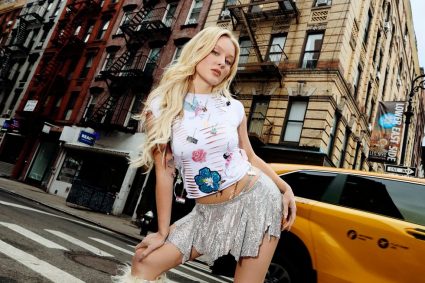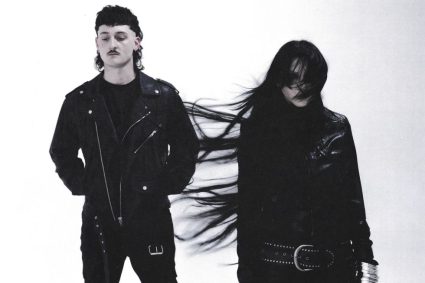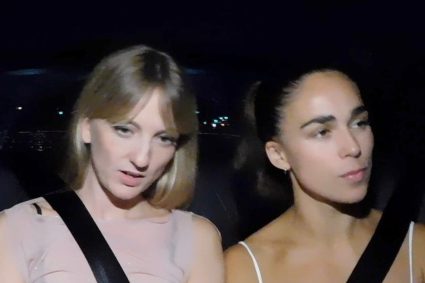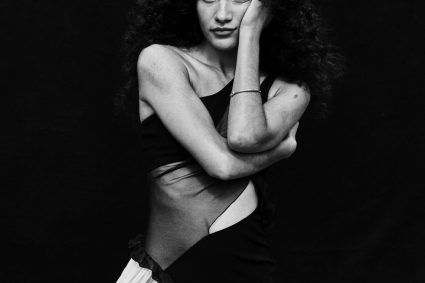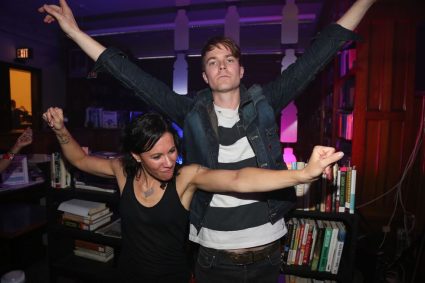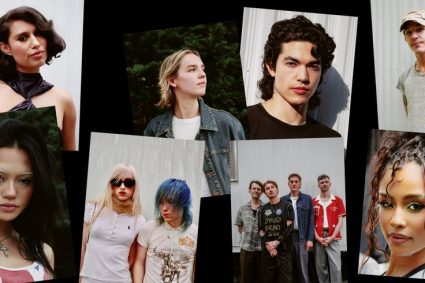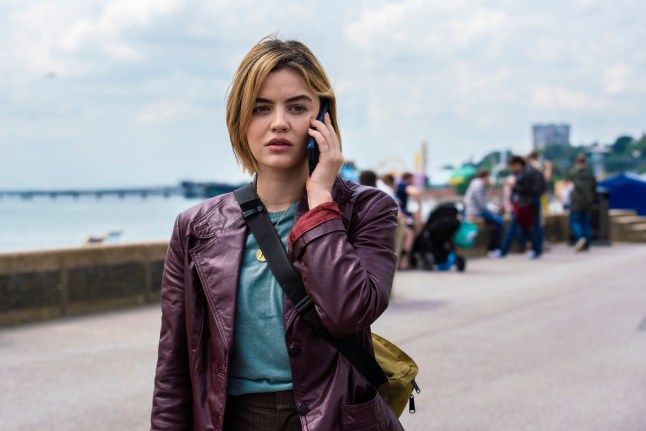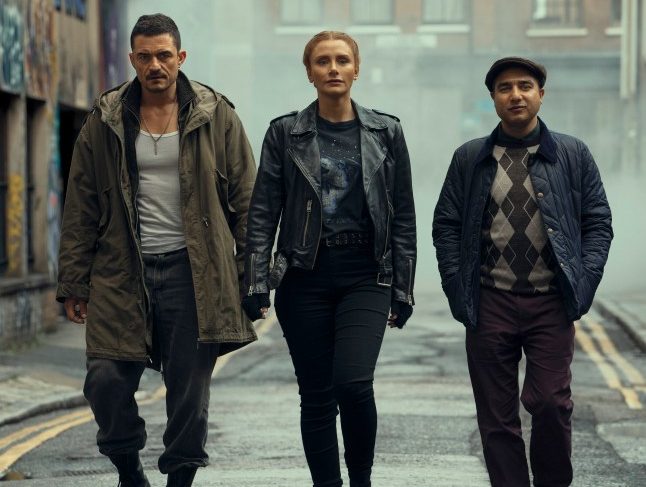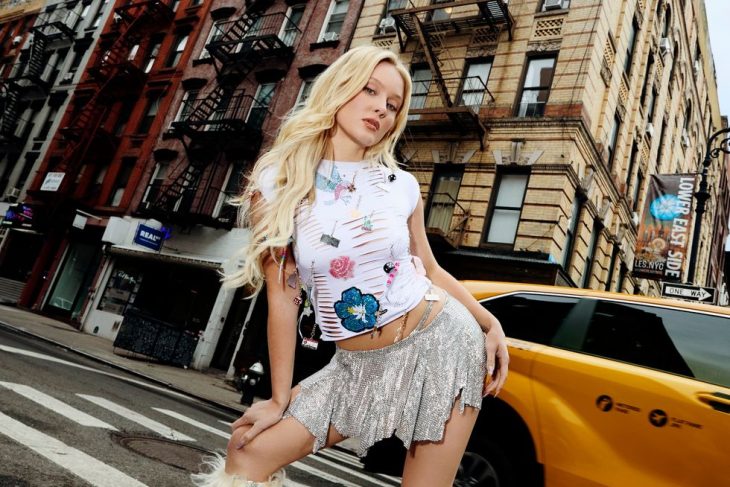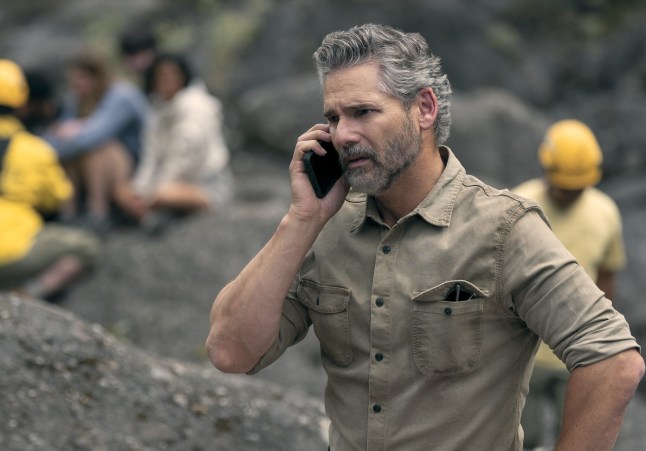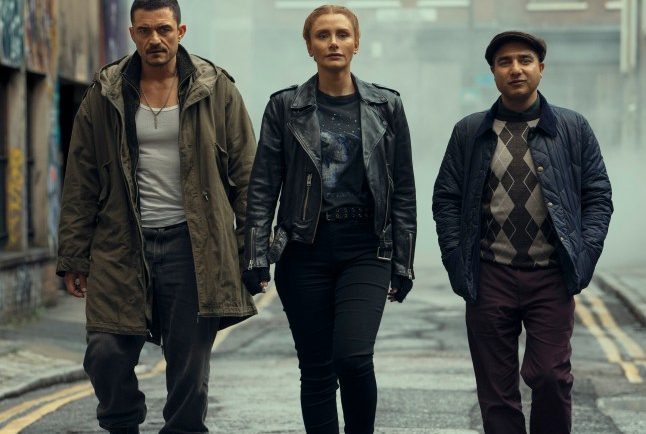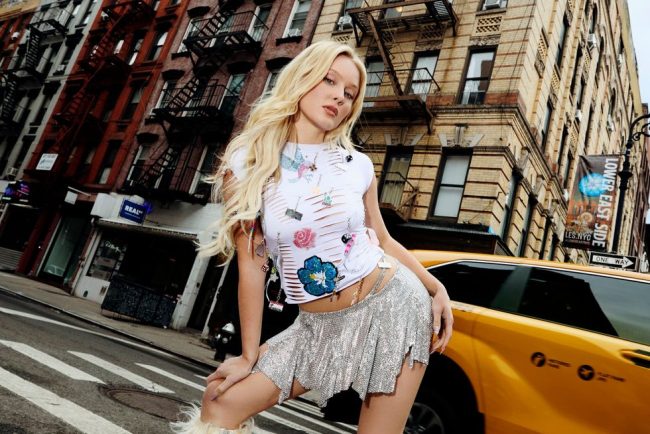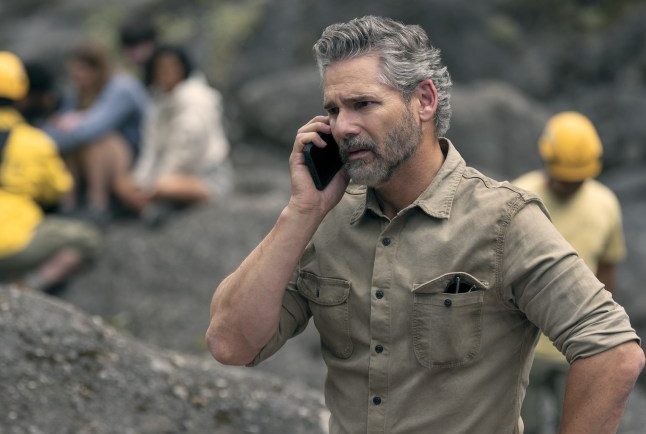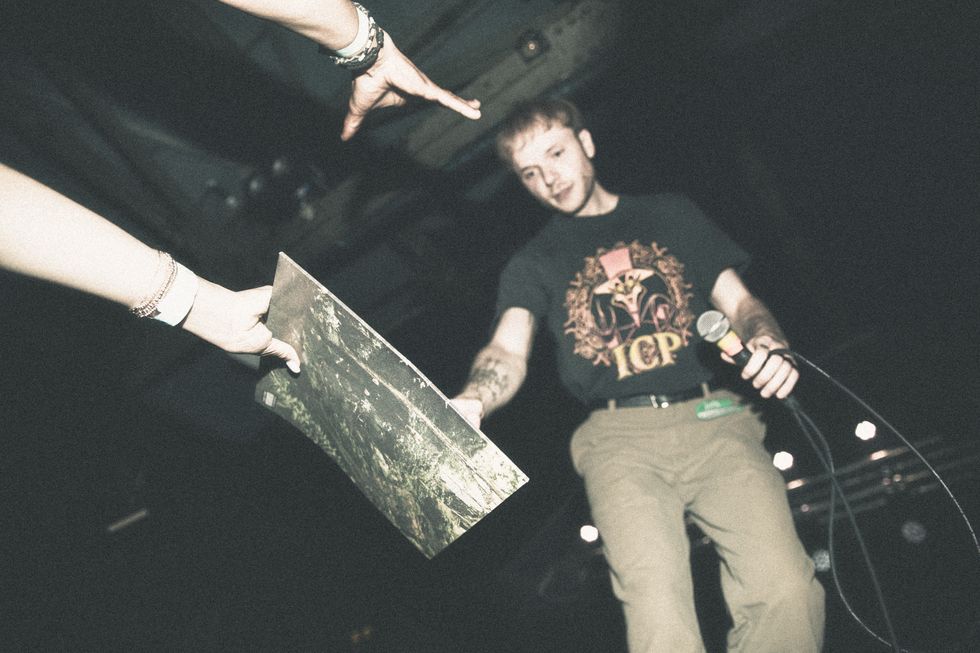

When Corbin walked onstage in St. Paul this spring, it felt less like a performance and more like a return. For some fans, it had been nearly a decade since they first found him — back when he was Spooky Black, crooning in a white turtleneck on YouTube and quietly shifting the DNA of internet music. Now 26, Corbin has grown up, disappeared, reappeared, and somehow never let go of the following that formed around him.
“We’re all living through times of crisis,” he tells PAPER. “Specifically man-made.” That tension between personal retreat and collective collapse sits at the core of his new album, Crisis Kid. The tracklist alone sets the tone: titles like “Cry Out In Pain,” “Comedy Divine,” and “Carbon Monoxide” sketch out a world that’s bleak, disjointed, and often surreal. It’s a moody, guitar-led record that leans into emotional ruin without romanticizing it, and finds unexpected warmth in moments of bleak clarity.
There’s a reason his fans still show up. Corbin’s music doesn’t just resonate. It attaches to people. His voice is as fragile as it is forceful, and his presence has always felt half-ghost, half-monk: emotionally raw, physically distant, yet somehow deeply grounding. There’s something spiritual about the way his fans respond to him, and something almost sacred in the way he holds space without saying much at all. Even in person, he gives little away. But what he offers is more than enough.
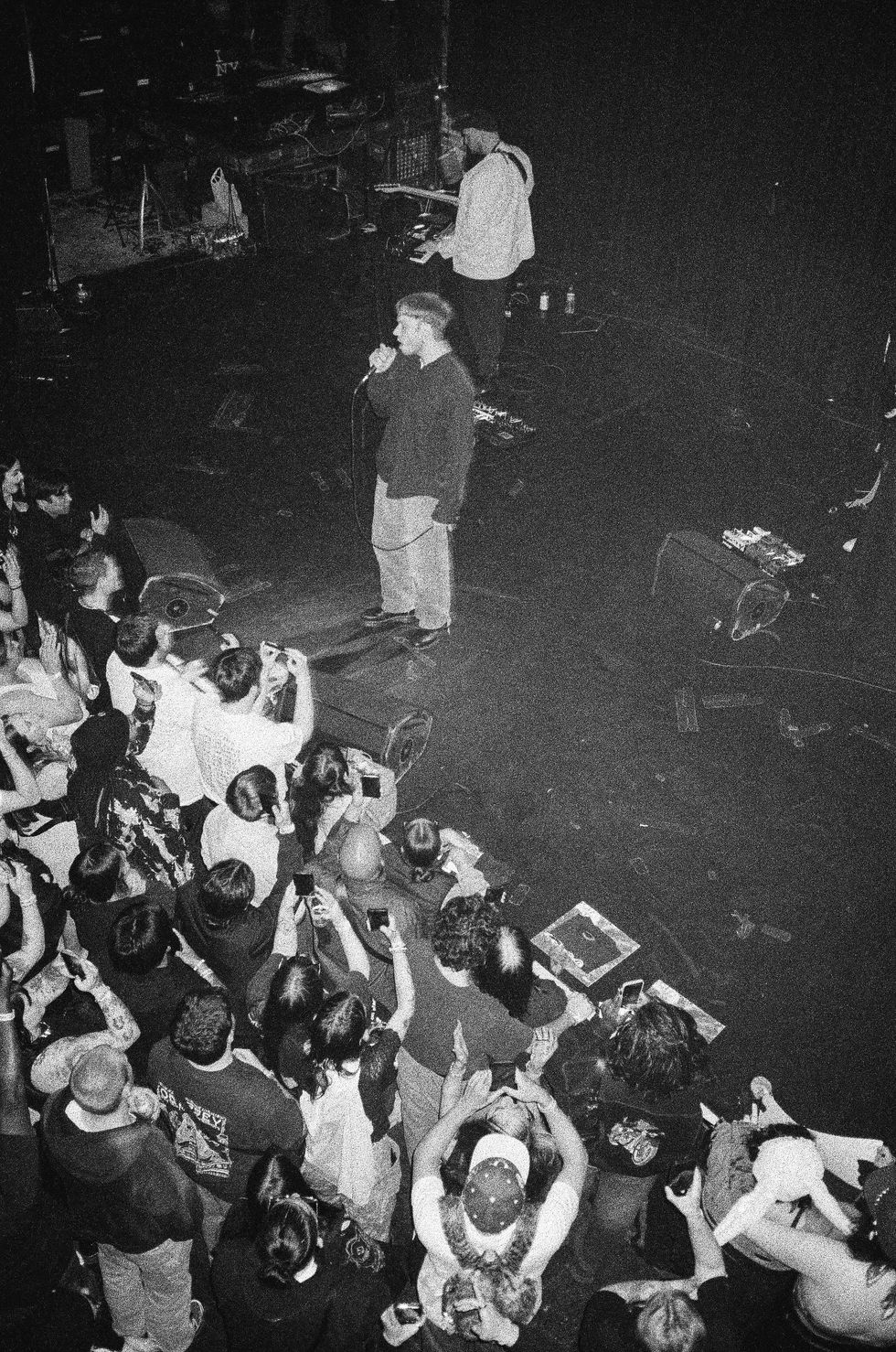
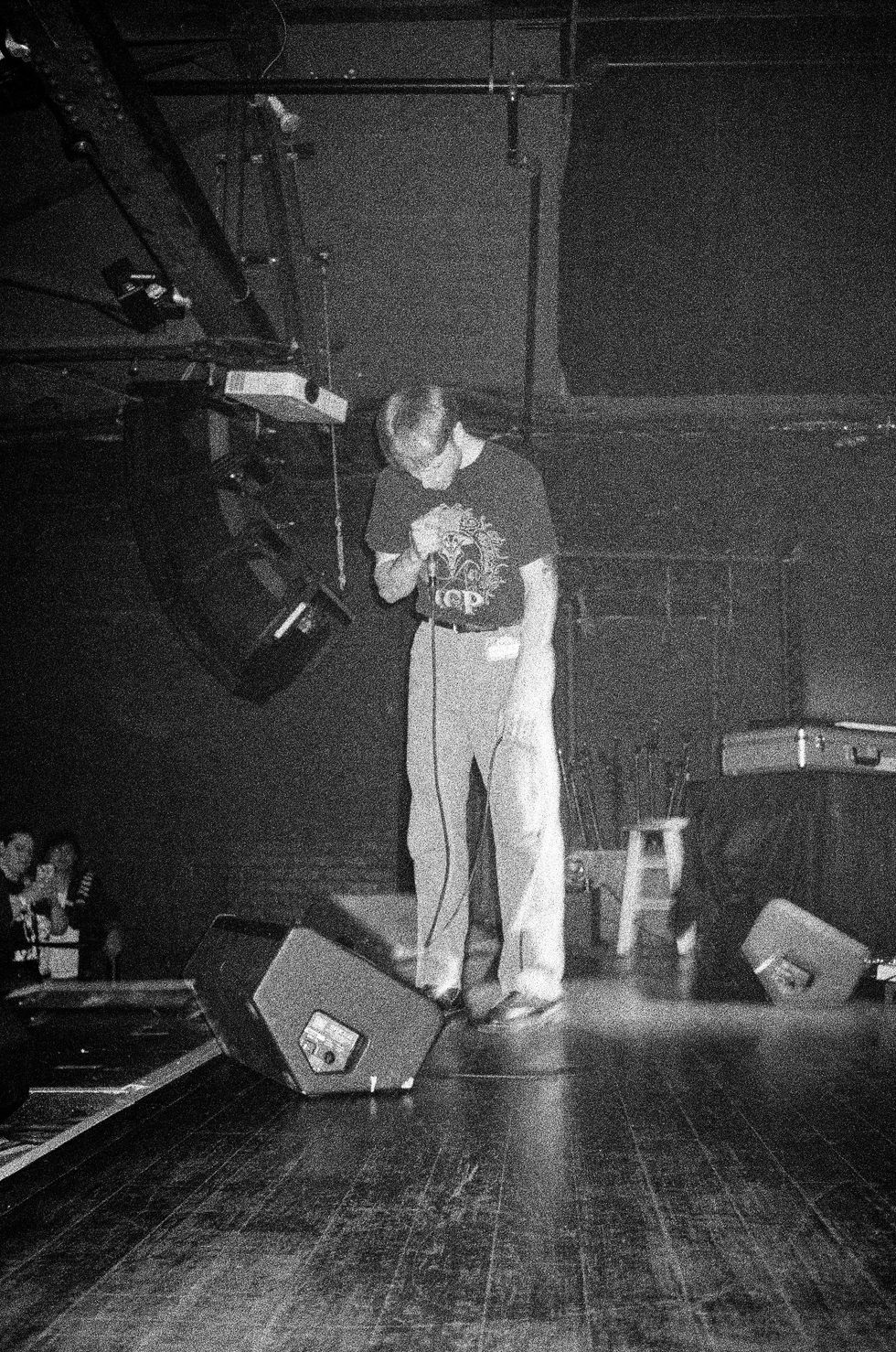
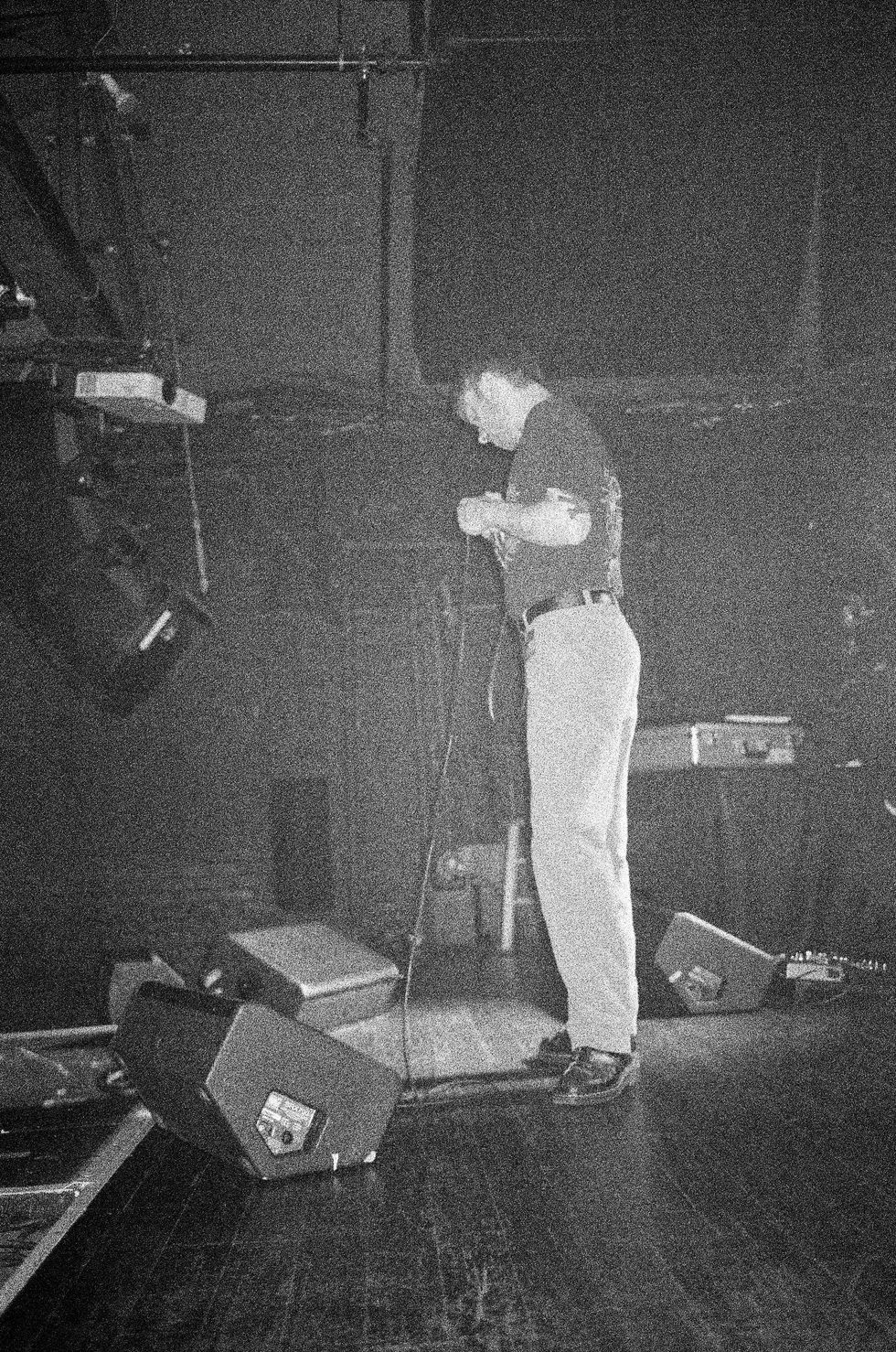
Crisis Kid is his clearest statement yet. Built around themes of isolation, addiction, and survival, it marks a shift from inward reflection to something more outward-facing. “I’m trying to help people not feel so alone,” he says. The album doesn’t abandon the foggy, grief-soaked textures he’s known for, but it feels more deliberate, less like a diary, more like a letter. If Mourn and Ghost With Skin felt submerged, Crisis Kid comes up for air. The pain is still there, but so is a flicker of belief in something bigger than himself.
Corbin doesn’t over-explain. He doesn’t pretend to have answers. But in a culture where oversharing is currency, there’s power in his restraint. He doesn’t need to be loud to be felt.
We caught up with the elusive rapper-singer just after wrapping his sold-out US tour this spring, with photos from the road capturing the quiet magnetism of his return.
Why the name Crisis Kid?
We’re all living through times of crisis, specifically man-made.
You come from this interesting batch of early 2010s internet artists who have evolved with the culture and have this cult fanbase online. I’m curious, what is your relationship with transformation?
I’m always trying to grow and be a better person. For the sake of keeping my ego in check, I have always tried not to put too much thought into what other people think. From project to project, I just try to keep things interesting in terms of new sounds and direction.
Do you meditate?
Not really.
Tell me about the single, “Come Down.” Why did you feel that this was a good track to release as a standalone single?
People around me thought it would be a good single and I agreed. I’ve never been much into singles but it seemed as good as any.
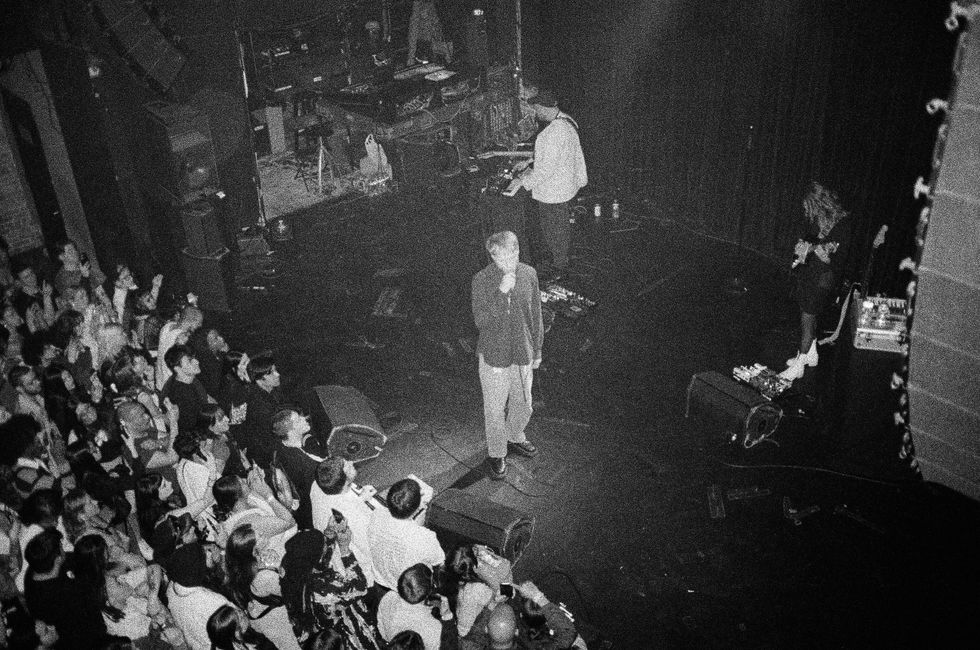
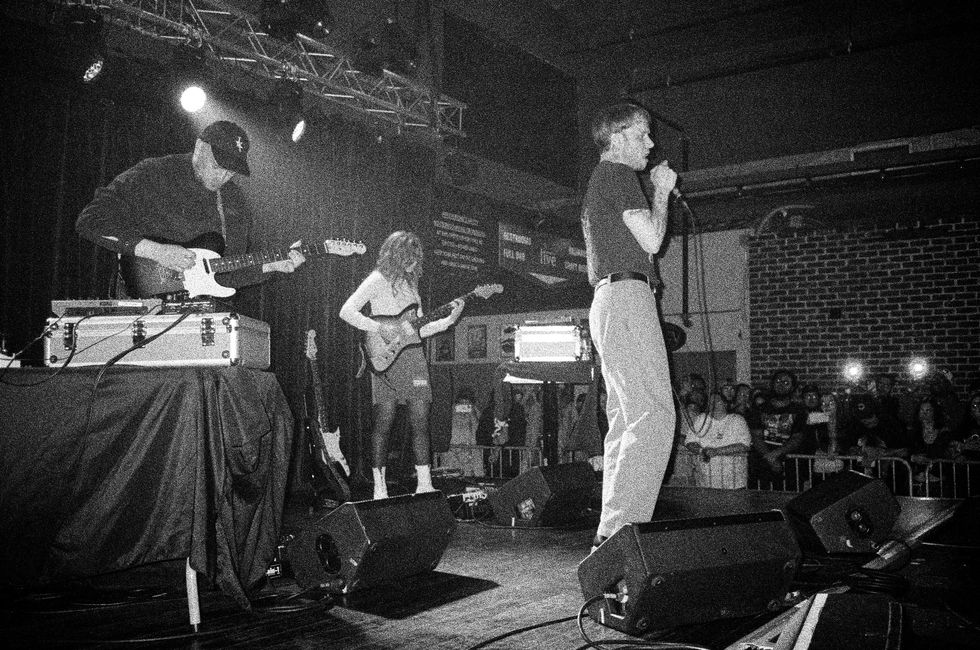
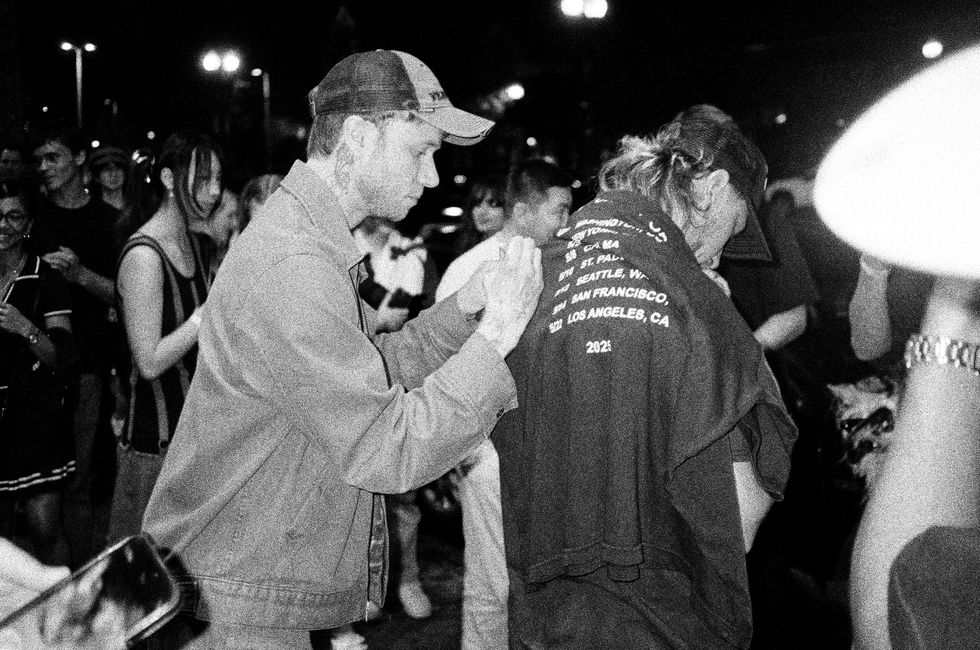
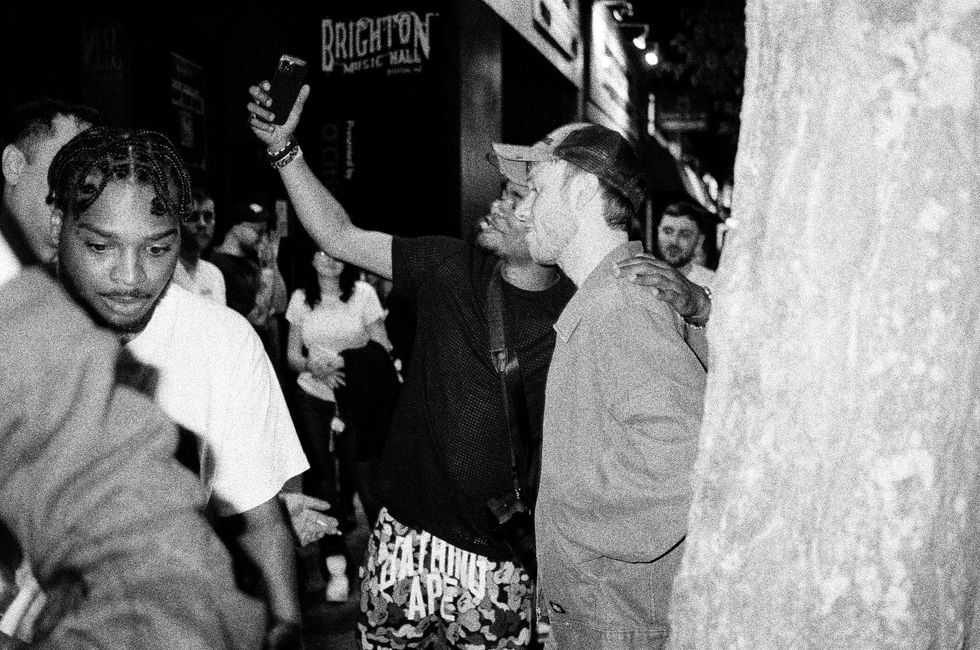
Your music has always felt like it exists in this liminal space—haunted but warm, distant yet deeply personal. Do you see making music as a way of reaching out, or are you more just talking to yourself in real time?
Most if not all of my previous projects have been pretty personal. Crisis Kid is the first album where I’m consciously trying to connect with people. In an attempt to help people not feel so alone.
Your sound has never stayed in one place for too long. Mourn was heavier, Ghost With Skin was more raw and experimental. Where does Crisis Kid fit in that lineage? What kind of world are you building with this one?
One in which hope can live. I don’t put too much emphasis on a sonic direction; I try to follow what is exciting in the moment and see the idea through.
You’ve kept a pretty low profile over the years. Is that intentional, or is it just easier to disappear sometimes?
I guess it was out of self-preservation. I wanted to keep some sense of normalcy in my life and struggle with what I perceive as the expectations that come with being an artist these days. It has been easier to keep to myself.
What’s been fueling you creatively these days? Music, movies, books?
Nothing much lately, hoping that playing shows will be inspiring for me. But some music I have been listening to is LUCY (Cooper B Handy), Tracy Chapman and Joanne Robertson and Dean Blunt.
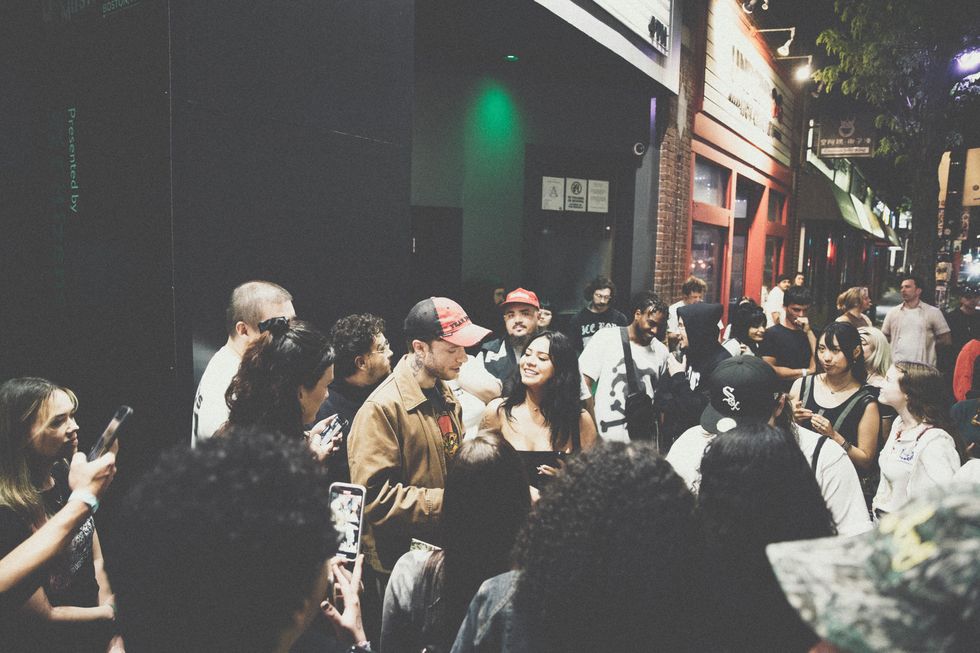
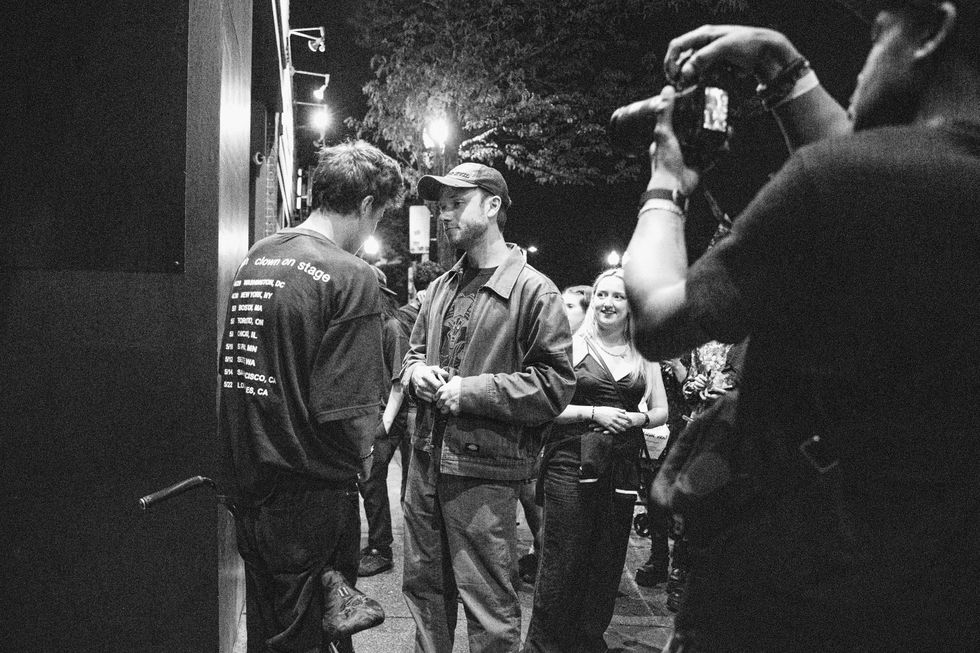
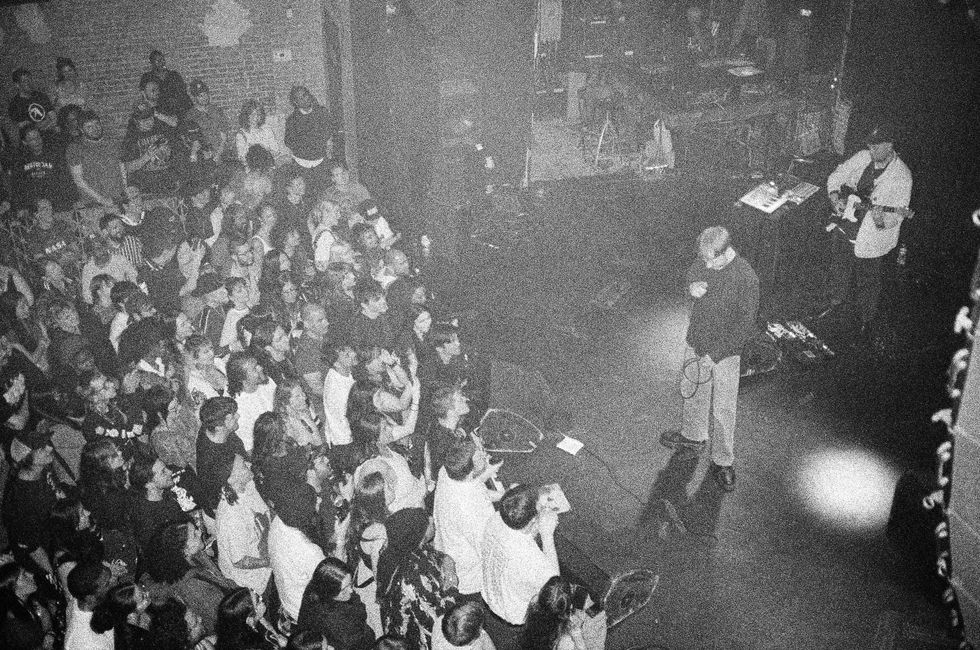
Photography: Muhammad Elarbi
